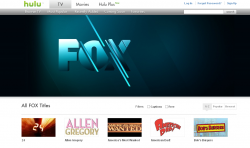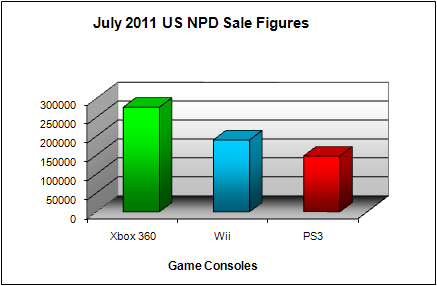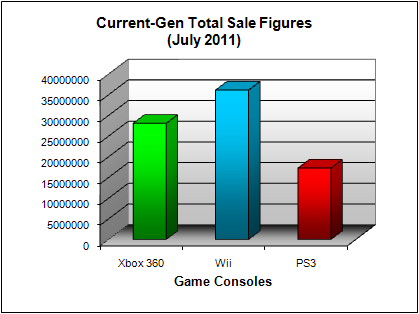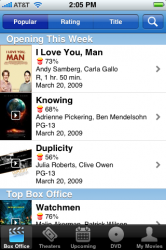Welcome to another edition of the WNR. Hope you’ve had a good week. There are finally a couple of interesting news items to talk about this week, not enough to make up for the last two week’s lull though. As much as I don’t like the RIAA and MPAA, and the mass copyright law firms, they do provide a lot of news. Without them, there would be hardly any news to write about, for that, I’m grateful.
 So let’s start this week’s RIAA hate with the story that, one of the four major backers of the RIAA, EMI, “lost” their lawsuit again cloud hosting website MP3tunes, although they could still end up the winners.
So let’s start this week’s RIAA hate with the story that, one of the four major backers of the RIAA, EMI, “lost” their lawsuit again cloud hosting website MP3tunes, although they could still end up the winners.
While the judge ruled in MP3tunes favour, allowing the website’s business model to continue, the judge still found MP3tunes and its founder guilty of several more specific cases of copyright infringement, mostly relating to MP3tunes’ sideload.com website, which allows music found on the net to be loaded into people’s cloud accounts without doing the manual download and upload routine (so a sideload, basically). MP3tunes had in its favour a strong policy against copyright infringement, and they mostly responded to DMCA takedown requests and acted promptly. And this allowed them to call on DMCA’s “safe harbor” provisions. It’s actually a good lesson for web businesses these days to take DMCA requests seriously, because in this case, the judge basically ruled that due to the existence of the DMCA and “safe harbor”, the responsibility for identifying infringing content falls to content owners, not the website operator. And this makes sense, because only the owner can identify their own “goods”, and only they can decide whether there’s need to pursue a course of action.

Sideload.com was sued by EMI as part of the MP3tunes lawsuit, and the judge found copyright infringement had occurred in some cases
And this is an important decision, because recent judgements, and mooted government legislation, have more frequently identified website operators, your Googles, YouTubes and Megauploads, as being responsible for having some kind of passive anti-piracy system, to remove offending content even without the content owner’s intervention. This is of course something content owners would want, because it means less work. But such a system would always be “false positive” heavy (there’s no way websites can know if you actually did have permission to upload the content or not), and there are also privacy issues (for example, if you uploaded a ZIP file to Megaupload, do they have permission to unzip and read your files to check for copyright infringement?), and self-censorship is a dangerous road to take. This decision is also a confirmation that the cloud hosting business model can work, but only if copyright protection is taken seriously by the cloud host.
Where MP3tunes lost was that some of the anti-piracy actions weren’t strong enough, for example, removing links on sideload.com for infringing content, but not actually removing the already “sideloaded” versions of the same songs from people’s cloud accounts. The founder of MP3tunes had also sideloaded some infringing songs, the judge found, and that could mean that EMI could still yet receive a good sized damages amount.
While EMI was busy losing one lawsuit, they, and the other three majors, were busy suing others. The four majors, and 25 other labels, have decided to sue TubeFire, a website that allows people to download YouTube videos.
If you’re first reaction is like mine, then it would be something like “what?”. YouTube download services have existed almost as long as YouTube, and there are so many out there that I don’t think anyone even considered them to be a source of piracy. I mean, when you upload something to YouTube, you kind of expect people to view it, for free, so why does Universal, EMI, Sony, Warner think TubeFire deserve to be sued? Apparently, people are downloading officially uploaded music videos and, I don’t know, viewing them or something, and that has angered the four major labels, and 25 other labels that are also part of the suit. It’s probably because their music video sales on iTunes has been affected or something – if they’re that concerned, then don’t (officially) upload to YouTube.
And since YouTube doesn’t have any serious DRM that prevents “downloading”, is it really illegal? Also, while downloading copyrighted YouTube video does occur, what about all the legal uses where people download non copyrighted video, or download for delayed “offline” viewing, a sort of time shifting if you will? And why TubeFire, and not the dozens of other websites and download tools? And what about browsers, who also “download” the video before it plays, the only difference is that they don’t allow people to keep the “download” beyond the current browser session? It is, in my opinion, a ridiculous lawsuit, especially when a lot of these online video download services do nothing more than a URL rewrite, with the download actually occurring from the original location (because even online video needs a “source” file, and a lot of download tools simply allow people to download this source file – so in effect, it’s the online video site that’s offering the download).
And the whole idea behind a music video is to promote music sales (do people buy a lot of music videos?), so does it really matter if people are downloading or streaming the videos, from a promotional perspective? Free creates hype, and that’s really an immeasurable benefit, but hugely important these days.

Fox content on Hulu (free) will be delayed by 8 days, and this has caused piracy to surge for Fox shows
Which is why Fox’s withdraw from the free edition of Hulu is surprisingly, to say the least. Hulu was created to offer free catch-up content, usually delayed just a single day after the original airing, to both help fuel Internet hype for shows, and to compete with pirated downloads of the same shows. Instead of people downloading pirated shows in the hundreds of thousands, people can instead go to Hulu to enjoy a totally legal alternative, and most are more than happy to put up with the ads, which then allows revenue to flow back to the networks. It’s a win-win situation, which is why Fox’s decision to delay free airings on Hulu to 8 days, instead of one, seems to be me like a self inflicted wound. For one, nobody would bother with a 8 day delayed airing – it might as well be 8 months in today’s “instant” culture. People will just find alternatives, and piracy being the prime choice. TorrentFreak wanted to test this theory, that Hulu prevents piracy, and conversely, no Hulu can cause piracy, and it seems they’ve found a correlation. Of two Fox shows (Hell’s Kitchen and MasterChef), pirated downloads on BitTorrent networks increased by 114% and 189% respectively compared to before the Fox Hulu change. So instead of earning ad revenue for Hulu airings, Fox has simply “forced” users to migrate back to BitTorrent.
Fox says they’re doing it because they want to promote certain cable services that bundle Fox shows with paid for Hulu accounts that still allows users to get access to Fox shows in a timely manner. But to me, this seems like a short sighted move for a quick hit of sponsorship money, and for all the things that “promote” piracy, actions (or inactions) of content owners probably has the biggest effect. It’s like the Netflix price rises, and what the lady says at the end of this video. People don’t want to pirate stuff if they have a legal alternative, but if you take away that alternative, well …
So, on to copyright law firms. The US Copyright Group has sued a deceased for piracy of the film “The Hurt Locker”. To be fair, the USCG are only the intermediaries, the real blame goes to the producers of “The Hurt Locker”. And to be fair again, the dead seemed like the next logical target, after the blind, and then the elderly, were both sued for download porn videos. If only zombies could be sued (and if they were real). High profile mistakes aside, who knows how many other mistaken lawsuits have been filed, which is always likely to be the case with such a scatter-gun approach to lawsuits. I mean, when your only piece of real evidence is a set of numbers (the IP address), which only at best gives you the subscriber account, and not the name of the actual person that made the download, then that’s not really evidence in my opinion. And for the argument that people should be held responsible for their own Internet connections, including securing it against unauthorised usage, that would be like saying if you forgot to lock your car and somebody used it to commit a crime, you would be held responsible.
The USCG’s other big client, Nu Image, producers of ‘The Expendables’, has made a drastic change in their suing strategy as well. They’ve dropped all remaining defendants from ‘The Expendables’ lawsuit, but before we celebrate a major victory against mass copyright lawsuits, Nu Image are not finished yet with suing ‘The Expendables’ downloaders. Instead of clumping all defendants in a single case and then getting the bulk of it thrown out for jurisdiction issues, Nu Image plan to re-file numerous smaller lawsuit in different locations, and thus avoid the jurisdiction issue. And not only that, they’re going to file lawsuits for downloaders of more of their films, including ‘Drive Angry’, ‘The Mechanic’ and the still-in-theaters ‘Conan the Barbarian’. You know, if Nu Image spent more time actually producing “good” films, perhaps they might not need to spend so much time and money on suing downloads. Just a thought.

In Blu-ray/3D news, Star Wars is going to be available on Blu-ray soon, and the first Star Wars release is a big event for any video format.
But with every new release of Star Wars, there’s always the threat that George Lucas might do more “tweaking” to the Star Wars films, especially the original trilogy (the prequel trilogy, nobody really cares about). So when Lucas hinted that there would be new stuff on the Blu-ray release, fans got, understandably, a bad feeling about it all. An all digital Yoda is probably coming for Episode I, but imagine the outcry if the puppet Yoda in the original trilogy was replaced with a digital one (for consistency, you see)? Not even Lucas would dare to do that of course, but this is the Internet, this is Star Wars, and so there will be hysteria at any and all rumours. To be fair, the puppet Yoda in Episode I looked weird and out of place, so a digital Yoda in that film (and that film only) is welcomed. There are also other improvements, for example, you get to see more of Episode I due to better transfer techniques that allows more of the picture to be shown on the screen (yeah, more Episode I, that’s what fans want!). Lucas also continues to “rewrite history” by removing special effects mistakes in the original trilogy, including the infamous Wampa puppeteer arm in Empire. While some fans would welcome the removal of obvious mistakes, some others are happy with the originals the way they are (even the pre-Special Edition editions, which I was hoping would be included on the Blu-ray), while most simply don’t mind either way, probably.
Is DVD on the way out? Well, it’s definitely not on the way in. A new study seems to suggest it is, but it was only really looking at portable DVD players, which the research say is being replaced by video capable smartphones and tablets. Common sense really, the same reason people no longer carry their portable electronic Sudoku player, their MP3 player, their PDA, and their pig destroying avian targeting contraptions.
As for the future of the DVD format? Every Blu-ray player is also a DVD player, so I think it will be around for a while yet.
Not much in gaming, so skipping …
And that brings us to the end of this WNR. Have a good one.












